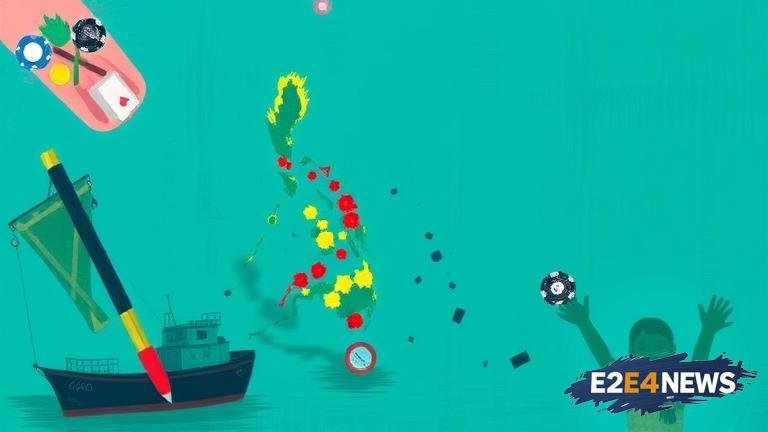The Philippine government’s decision to ban offshore gaming, also known as Philippine Offshore Gaming Operators (POGOs), was made in July 2024. The ban was implemented due to concerns over the industry’s impact on the country’s economy, as well as its potential links to crime and corruption. Despite the ban, the industry’s shadow still looms large in the Philippines. Many POGO operators have continued to operate in the country, albeit in a more discreet manner. The industry’s presence has also led to an increase in crime, including kidnapping and extortion. The Philippine National Police has reported a significant increase in crimes related to POGOs, with many cases still unsolved. The ban has also had a significant impact on the country’s economy, with many businesses that relied on POGOs forced to close. The Philippine government has estimated that the ban will result in a loss of over PHP 10 billion in revenue. However, the government has also stated that the ban is necessary to protect the country’s citizens and economy. The industry’s presence has also led to concerns over its impact on the country’s society, with many Filipinos becoming addicted to online gaming. The Philippine government has implemented measures to prevent online gaming addiction, including a ban on online gaming advertisements. Despite these measures, the industry’s shadow still looms large in the Philippines. Many experts believe that the ban will not be effective in eliminating the industry, as many operators will continue to find ways to operate in the country. The Philippine government has also faced criticism for its handling of the industry, with many believing that the ban was not implemented soon enough. The industry’s presence has also led to concerns over its impact on the country’s relationships with other countries, particularly China. The Chinese government has been critical of the Philippine government’s handling of the industry, with many believing that the ban is an attempt to curb Chinese investment in the country. The Philippine government has denied these claims, stating that the ban is necessary to protect the country’s citizens and economy. The industry’s shadow still looms large in the Philippines, with many believing that the ban will not be effective in eliminating the industry. The Philippine government will need to continue to implement measures to prevent the industry’s presence, including increasing enforcement and implementing stricter regulations. The industry’s presence has also led to concerns over its impact on the country’s infrastructure, with many believing that the industry’s growth has put a strain on the country’s resources. The Philippine government has implemented measures to improve the country’s infrastructure, including increasing funding for transportation and communication projects. Despite these measures, the industry’s shadow still looms large in the Philippines. The Philippine government will need to continue to work to eliminate the industry’s presence, including increasing enforcement and implementing stricter regulations. The industry’s presence has also led to concerns over its impact on the country’s environment, with many believing that the industry’s growth has led to an increase in pollution. The Philippine government has implemented measures to reduce pollution, including increasing funding for environmental projects. The industry’s shadow still looms large in the Philippines, with many believing that the ban will not be effective in eliminating the industry. The Philippine government will need to continue to work to eliminate the industry’s presence, including increasing enforcement and implementing stricter regulations.
